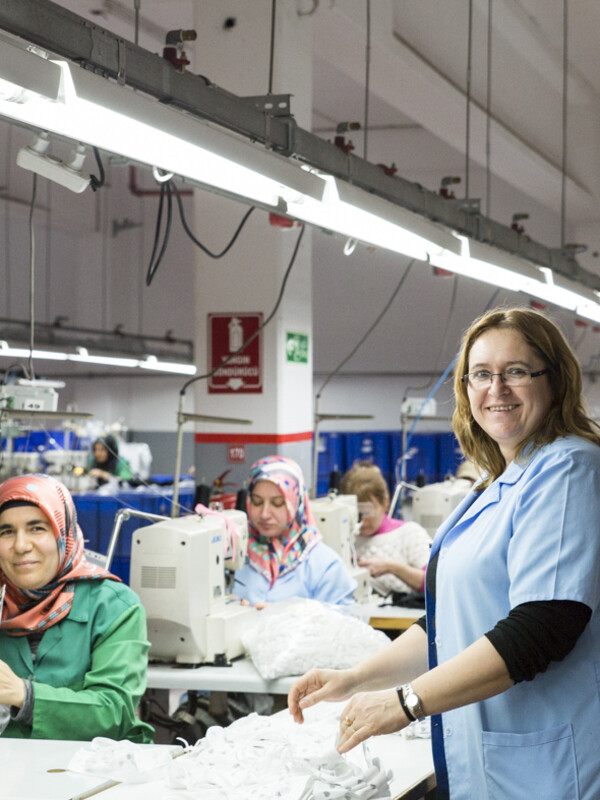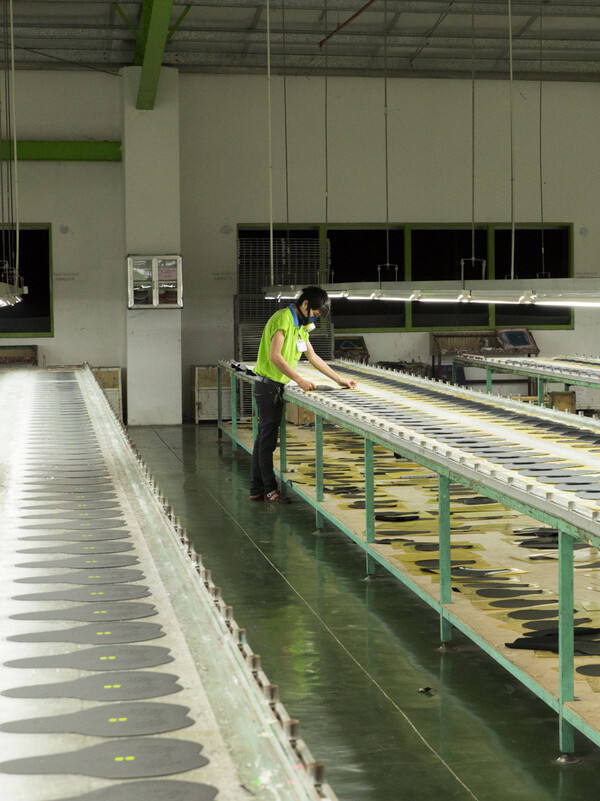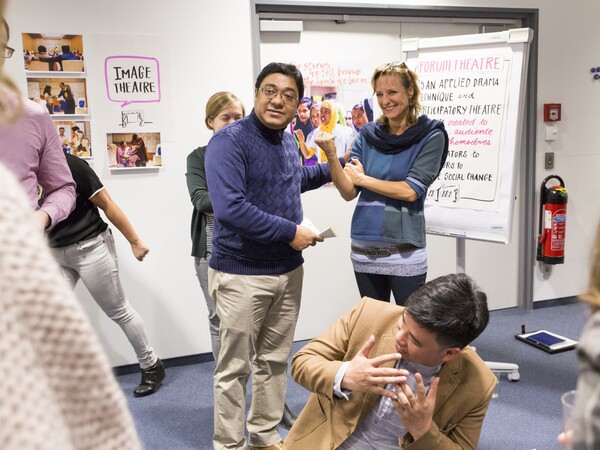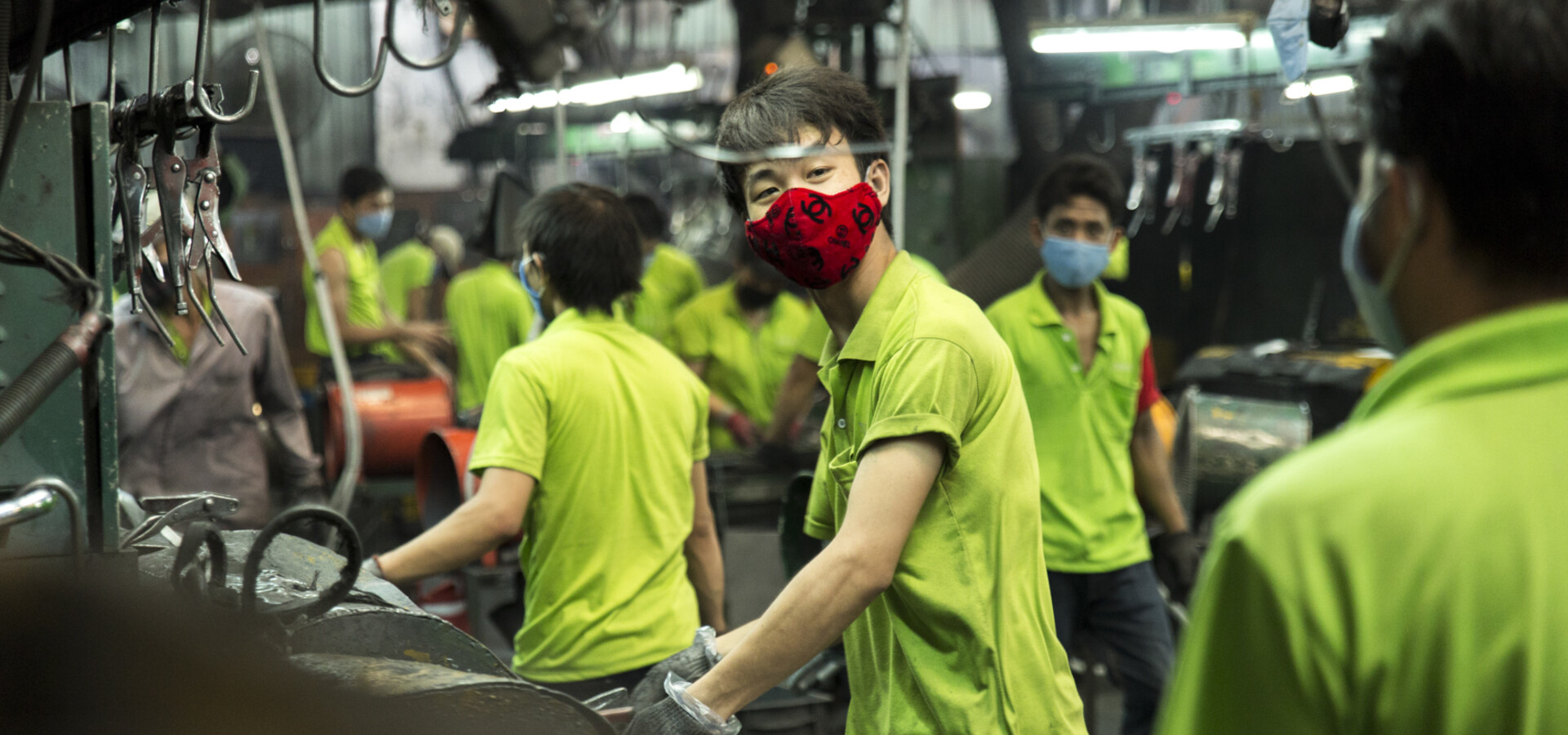We know that working conditions cannot be improved by carrying out audits. A holistic approach is needed instead.
We assess the human rights situation
In the first stage of our risk management process, we assess the human rights situation in those countries where our goods are produced. We base our analysis on recognised indicators provided by international organisations, research institutes and trade unions, as well as our own experience. This allows us to develop guidelines that are tailored to specific issues and to individual countries or regions, such as the Sumangali system in southern India, for example.
In the second stage, before entering into a business relationship, we check whether the manufacturers meet our minimum standards for human rights and workers’ rights. These are defined in the Tchibo Social and Environmental Code of Conduct (SCoC). If the manufacturers meet the necessary standards and any specific guidelines that may be required, we begin our cooperation. If they are in breach of these standards and regulations, improvements must be implemented before we place any product orders.


Audits have their limits
We are very sceptical about the practice of ensuring compliance with human rights and workers’ rights in factories solely by means of social audits: social audits cannot achieve long-term improvements. As a rule, they only reveal the deficiencies evident at the time of the audit.
That is why we prefer to focus on criteria that allow us to use audits to get a realistic insight into the conditions in the factories: health and safety, human resource management systems and visible environmental pollution. In contrast, problems such as discrimination and violations of trade union rights tend to remain hidden. We do not want to be lulled into a false sense of security, so we do not even ask about these issues in our compliance audits. Instead, we work on them as part of our WE programme and in collaboration with trade unions.
Read our Human Rights Report (Non Food) to find out more about how we deal with the results of social and environmental audits:
A holistic approach is needed
We cannot improve human rights and workers’ rights through audits. Instead, we achieve improvements in these areas through our WE dialogue programme and our work with trade unions.
These approaches go far beyond auditing and are at the very heart of our human rights work. They allow us to address the shortcomings of a traditional auditing approach, which rarely involves those people directly impacted by misconduct – the factory workers.

